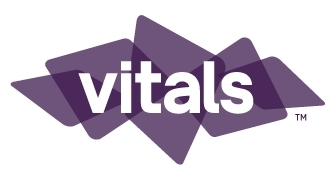LYNDHURST, N.J.--(BUSINESS WIRE)--There are few things more precious than the doctor-patient relationship. But, at a time of year when love is supposedly in the air, most Americans report that they aren’t too fond of their physicians. Worse, people don’t have the tools to evaluate their options and make better care decisions.
According to a recent Vitals Index, Americans say that cost matters greatly when it comes to choosing a doctor. In fact, the number one determining factor for selecting a doctor is whether the physician is in-network. It’s nearly twice as important as other top factors cited, including location (37 percent), bedside manner (34 percent), education/credentials (30 percent) and availability and office hours (25 percent).
But despite an emphasis on keeping out-of-pocket costs low, most patients aren’t minimizing costs they could face from deductibles. The survey found the majority of people don’t ask about cost prior to an appointment, lab test, health screening or lab image, like an X-ray or MRI. However, 48 percent of survey respondents do ask about the cost of their prescriptions. In addition, nearly 50 percent don’t know if their doctor can answer their questions about the cost of medical care, meaning they likely aren’t having the conversation in the first place.
When determining better value care, cost is only one side of the equation. Consumers also need to evaluate doctors on quality. Yet, the search for doctor information online remains a challenge. Two-thirds of respondents rate finding information online as somewhat difficult to very difficult.
The result: A whopping 70 percent of people are not fully satisfied with their doctor-patient relationship. Nearly 54 percent describe their relationship as “good enough for the moment.” Another 15 percent said they weren’t “into him/her” or have a “cold and emotionless” relationship with their doctor.
But while quality and cost information remain elusive for the moment, choice in the marketplace is becoming more evident. Half of the survey respondents used alternative medical facilities like urgent care centers, retail clinics or surgical centers. More than half cited convenience as the reason – whether it was closer to their home, open on weekends or had walk-in availability. One in ten said they chose an alternative care center on the basis of cost.
“The good news is that consumers have more places to turn when it comes to receiving care,” said Mitch Rothschild, CEO of Vitals. “But just like you wouldn’t give a new driver a car without learning how to operate it, consumers also need more help figuring out how to get value – and ultimately satisfaction – from their health care.”
The survey was conducted by a third-party on behalf of Vitals in January, 2015. It polled over 800 American adults online, age 18 and older.
About Vitals
Vitals is reinventing the way people shop and save on their medical care. We support effective decision-making through cost, quality and access data, as well as reward and incentive programs. Vitals leads the market with the first transparency and engagement platform that achieves measurable savings for consumers through a retail-like approach to purchasing health care services. Through health plans, hospitals and our leading consumer websites, Vitals helps more than 150 million people each year access better, more affordable care. The Vitals Index is an ongoing report about the state of doctor-patient relationships based on proprietary data and surveys.
Follow us on Facebook, LinkedIn or Twitter.




